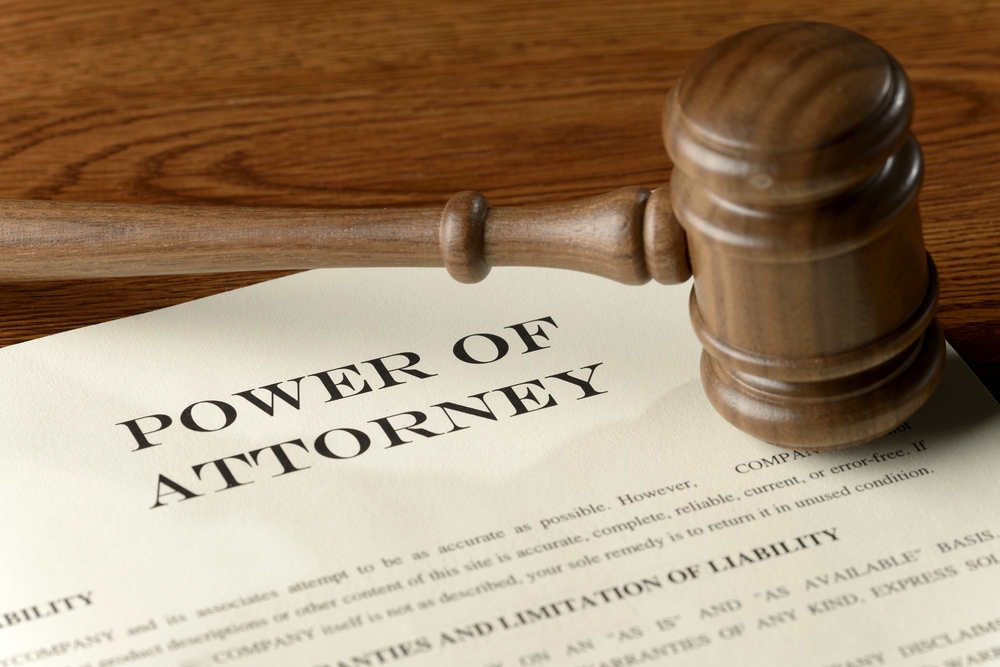
Will Writing
It is generally accepted that no-one knows when death will occur.
You've spent your life working hard to arrive at where you are today and you want the fruits of your labour to go to those you love.
When the inevitable time comes, we want all that we have to be given to the ones we love. This can only be truly guaranteed if we have had the fore-thought to make a Will in advance.
If a VALID Will can not be found after your death, your wishes won't be considered, instead the rules of Intestacy will be followed. Sadly this can have unintened consequences and create stress and disputes between family members.
Having a legal Will gives you peace of mind that your gift will go to your loved ones, and they will be grateful for the rest of thier lives that you took the time to write a legally valid Will.

Click image to enlarge
Probate & Will Administration
What is estate administration? You’ve probably heard of probate. That’s one part of estate administration. Estate administration is the process of sorting out a deceased person’s legal and tax affairs. Everything from bank accounts, belongings and property to debts, pensions and Inheritance Tax. It can be extremely complex and is required after every death.
We are proud to be working in partnership with the UK’s leading probate and estate administration specialists. They have helped thousands of families receive their inheritance from estates big and small having distributed over £1 billion in inheritance. There is a family just like yours behind every single estate so we handle every estate with the utmost care.
When it comes to probate and estate administration, we can handle everything you can think of (and all the things you might not have considered). From self-assessment tax returns and shares to pet re-homing, we have got everything in place to take care of your specific needs. So don’t worry, you are in safe hands. Below is just a few of the responsibilities undertaken by us:
- Completing all Inheritance Tax form
- Applying for probate or confirmation
- Income Tax work for the year of death
- Specialist buildings insurance
- Setting up Trusts in a Will
- Postal redirection
- Registering unregistered properties
- Arranging for a pet to be re-homed
- Cancelling or transferring utilities
- Distributing funds to beneficiaries
- 24/7 online case tracking
- Producing estate accounts
By using Complete Legal Solutions, we can offer a home visit enabling you to speak with someone face-to-face, whilst at the same time maintaining a fixed price.
Contact Complete Legal Services for a no obligation assessment and quote as an alternative to the high street solicitor fees. We will be happy to discuss all options with you and allow you to make an informed decision.
Tell you what the charges are up-front.
Our guaranteed fixed pricing offers complete peace of mind. So, if you ever want to ask a question, call us. We will never be watching the clock. In fact, we will give you all the time you need.
Distribute assets as soon as possible.
Administering estates is what we specialise in all day, every day. We have got the systems and team in place to keep your case moving forward and are committed to distributing assets as quickly as possible.
Legal and tax.
From applying for probate to dealing with Inheritance Tax, probate and estate administration involves a significant amount of specialist legal and tax work. We have a team of experts who can manage all of this work on your behalf.
Protect your family.
Probate and estate administration can be complex. Our partner law firm take on full responsibility and liability so that you don’t have to worry. That means if there’s a claim on the estate, you’re covered. Plus, their unique insurance protects you against claims for ten years.
Dealing with property.
The family home can be the most valuable part of an estate, financially and emotionally. We will value the property and organise specialist insurance cover as standard. We can also manage all aspects of the sale on your behalf should you wish.
Paying inheritance. Quickly.
We try to make initial payments to beneficiaries quickly and regularly. You and your family will receive whatever you are entitled to as soon as possible.
All the paperwork.
Dealing with HMRC, liaising with utility providers, resolving pension enquiries. All of these tasks are an additional burden at a difficult time. We will deal with all of the paperwork and make the necessary calls, so you don’t have to.
Valuing assets.
Paying debts. Over a lifetime, everyone accumulates assets and debts. As part of the probate and estate administration process, everything has to be dealt with. We will handle everything on your behalf so that you have complete peace of mind.
Top independent reviews from customers.
We know how much probate and estate administration matters. That’s one of the reasons why our customers give us a 5-star rating on Facebook and Google.

Trusts
Trusts have been used by families for centuries to protect wealth. A trust is a formal transfer of assets (whether they be property, shares or just cash) to a small group of people known as 'Trustees' with instructions that they hold the assets for the benefit of others. If the trust is to be made in your lifetime to take immediate effect, then it is usually evidenced by a trust deed and often referred to as a 'settlement'. If it is to be created on or shortly after your death then the trust rules must be set out in your Will.
Whether by lifetime settlement or by Will, the trust instrument will state who is responsible for looking after the gifted assets (the Trustees), who is to benefit (the Beneficiaries) and any conditions or rules that the Trustees or Beneficiaries must adhere to. How long a trust lasts is entirely as you think appropriate but the trust period must be stated in the trust document. It might be for just a few years, perhaps during a person's widowhood or until a child attains a certain age or marries. Trusts can last much longer however – up to 125 years. It is usually advisable to give the Trustees the power to terminate the trust at their discretion.
Lifetime Trusts
Also known as Asset Protection Trusts, they are used to ring fence assets providing peace of mind that the assets are protected to provide for chosen beneficiaries. Asset protection trusts are a lifetime settlement used to provide for a surviving spouse and future generations and to attempt to protect against the possible claims of third parties. Placing your home and/or other assets in trust whilst you are still alive can provide numerous benefits to you and your family. Lifetime trusts, not only provide peace of mind, but they also allow you to retain full control over the property and assets placed in the trust and to continue to benefit from them. They can continue to live in the property for the rest of their lives and upsize or down size, according to their needs at the time. In addition, for most people, they also provide long term financial savings.
Will Trusts
also known as Property Protection Trusts
Protects the deceased's share of the family home (usually 50%) for the children from the effects of the survivor remarrying, care costs and is especially effective where the testator(s) have children from previous relationships and wish them to benefit.
Discretionary Trust
Can be used to ring fence assets. Beneficiaries can be spouse and children. This type of trust can be used effectively where there are concerns regarding children, such as financial, drinking, drug or gambling related problems.
Disabled Discretionary Trust
Can be tax efficient as well as providing for the needs of the disabled beneficiary. For beneficiaries who are unable to manage their own affairs by way of mental or physical disability.
Business Property Relief Trust
Referred to as a BPR trust where business assets are eligible for business property relief. Gives spouse right to income and can utilise the tax benefits available under the current rules of this trust.
Immediate Post Death Interest Trust
Effective way for the client to preserve their assets but provide for spouse/partner. Life interest trust or an Immediate Post Death Interest trust (IPDI) gives the life tenant income until death. It can also include express provisions for trustees to advance capital and income. On death of remaining spouse/partner, the assets pass to named beneficiaries.
Flexible Life Interest Trust
Extremely flexible giving trustees’ power to advance income and capital at their discretion. Ability to use all the testators' assets, utilise both transferable nil rate bands and can provide the trustees with the ability to tax plan for the future whilst providing to the surviving spouse and children.
Right to Occupy Trust
It is not uncommon to have a member of your family living at your home and if you die, they may need your protection to allow them to remain in the property. This can be for a specified number of years, for life or until the individual no longer requires to remain in the property. This protection can only be given by this Trust.

Lasting Power of Attourney
If you lose capacity either through an accident or illness such as a stroke or dementia, someone needs to act on your behalf to carry out your personal and financial affairs. Losing legal capacity to make decisions for yourself will mean that your bank accounts are frozen until someone can be appointed to make decisions for you. This can cause a lot of distress for friends and family as bills cannot be paid and pensions or benefits cannot be accessed.
A Lasting Power of Attorney (LPA) specifically deals with the appointment of one or more people to manage your affairs if you are unable to do so.
There are two types of LPA one to choose who can make financial decisions for you (LPA Property & Finance) and the other to choose who can make personal, medical or care decisions for you (LPA Health & Welfare).
Trying to arrange a Lasting Power or Attorney (LPA) after someone has already lost mental capacity can be very difficult if not sometimes impossible. Other more costly options need to be explored if this is the case. One of these options is known as a Deputyship Order which is more expensive and has many limitations as opposed to an LPA. We always recommend to arrange a Lasting Power of Attorney sooner rather than later to ensure your affairs are dealt with by the person you want, rather than the courts. It also means that you will not incur expensive legal costs.
An LPA for Property & Finance can cover:
- Buying or selling property
- Operating bank accounts
- Giving access to the donor's financial information
- Claiming welfare benefits or pension
- Receiving any income, inheritance or other entitlement
- Dealing with the donor's tax affairs
- Paying the donor's mortgage, rent and household expenses
- Insuring, maintaining and repairing the donor's property
- Investing the donor's savings
- Making limited gifts on the donor's behalf
- Paying for private medical care and residential care or nursing home fees
An LPA for Health & Welfare can cover:
- Where the donor should live
- Donor's day-to-day care
- Who the donor may have contact with
- Consenting or refusing medical treatments
- Arranging medical, dental or optical treatments
- Assessments and provision of community care services
- Donor taking part in social activities, leisure activities or education
- Manage the donor's personal correspondence and papers
- Access to personal information about donor
- Complaints about the donor's care or treatment

Document Storage
You have planned your estate and the Will has been signed and witnessed, but where do you keep your Will and other important documents safe from threats such as fire, theft or flooding? A will accidently destroyed, through fire, flood or some other disaster is still valid, the problem is how do you prove that the Will existed and if you can, how can you show it to still be valid?
Making your Will is incredibly important, ensuring that your Executor can handle your affairs efficiently, and that your family and friends are saved from undue stress. For the same reasons, once your Will is completed, it should be carefully stored. Ideally it should be kept somewhere safe, where no one can get unauthorised access to it and where your Executor will know how to retrieve it.
Reasons to store your valuable documents:
- To avoid damage caused by fire or flood.
- To avoid tampering by those that find it after your death.
- To ensure they are in good enough condition to be used when a grant of probate is applied for or a power of attorney is needed.
- To avoid loss of the documents themselves.
- To maintain privacy of your wishes.
We can offer you the safest option when it comes to storing your Will. We will take ownership and full responsibility for the lifetime storage of your Will, giving you one less thing to worry about. We also:
- Register your Will on the National Will Register so that it can be found quickly and easily.
- Store the documents in a fully insured, professional facility guaranteed against flood and fire damage.
- Provide you with a unique reference number so that you can retrieve the Will at any time.
- Give you access to a Free phone help desk who can answer any questions that you may have.
A professional storage solution
There are over 100,000 Wills at our professional storage facility near Corsham in Wiltshire. Originally designed as a secure, underground bunker for use in times of war, it has now been professionally converted into a state-of-the-art document storage facility.
How will my documents be protected?
The facility offers a number of security features which ensure that your Will is completely protected against any risks that could damage or invalidate it:
- A fully air conditioned, temperature and humidity-controlled environment.
- Full protection against flooding and water damage.
- Full protection against fire and smoke using gas suppression agents that will not damage documents.
- Bar coded registration to ensure ease of access and retrieval.
- A fully secured facility, monitored by CCTV 24 hours a day.
- Access limited to registered staff only, enforced by secure entry.
The facility meets ISO 9001 and ISO14001 quality management standards. It also meets the BSI PD 5454 standard for the preservation of archived materials.
How do I store my documents with Complete Legal Solutions?
Please contact Peter Taglione on 07968 314 939, who will be able to organise the storage of your documents. Upon receipt of the document, we will send you a letter confirming the storage details, your unique reference number and information on how to retrieve the document.

Severance And Tenancy
A Severance of Joint Tenancy is the alteration of ownership between joint owners of a property. If you own your property jointly, either as a married couple, partners or friends, you will have chosen one of two kinds of ownership. You will own your property either as:
- Beneficial joint tenants; or
- Tenants in common.
As joint tenants, each person owns 100% of the property at the same time as the other. So when one owner dies, the survivors own the property automatically whatever one persons' Will might state. If the property is owned as tenants in common, each person owns a share, so if one dies, their share of the property passes to a beneficiary named in their Will or according to the rules of intestacy.
Severance of Joint Tenancy is very popular with couples (married or otherwise) seeking to protect the house and other assets from third party threats and/or the remarriage of the survivor. In these cases, clients often do not want the surviving owner to own more than their ‘share’. To prevent this from happening the client first of all needs to own an individual share. A Severance of Joint Tenancy achieves this by changing the ownership from Joint Tenants to Tenants in Common.
At the same time as changing ownership, Trusts would normally be written into the Will documents to support this arrangement.






